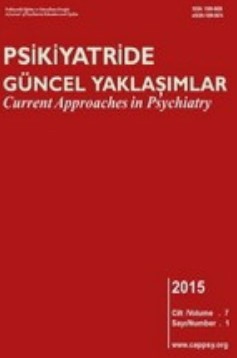Zoom Yorgunluğu: Bir Gözden Geçirme
Zoom Fatigue: A Review
Author(s): Gözde Bacık Yaman, Çiçek HocaoğluSubject(s): Labor relations, Psychology of Self, Behaviorism, Health and medicine and law, ICT Information and Communications Technologies
Published by: Çukurova Universitesi Tip Fakultesi Psikiyatri Anabilim Dalı
Keywords: Zoom; fatigue; nonverbal communication; hypergaze;
Summary/Abstract: A novel coronavirus disease (COVID-19) pandemic is not just about physical health; It disrupts daily life on a global scale by changing individual and social attitudes and behaviors. In these conditions, video conferencing applications are becoming mainstream worldwide for the continuation of work, social life and education. Video conferences have helped us to remotely connect study rooms, classrooms, but after attending one or 2 virtual meetings, listening to an online webinar or two, and perhaps speaking, people begin to express feeling exhausted and nervous. Thus, a new term emerged, also named after a popular application, resulting from the excessive use of video conferencing platforms: ‘Zoom Fatigue’. Zoom fatigue is defined as feeling tired after a meeting over a video conferencing tool. Fatigue appears to be different and specific from normal work fatigue. Mechanisms specific to existing video conferencing applications that can cause Zoom Fatigue are suggested. The first mechanism mentions mirror anxiety, which can be triggered by self-gaze in video conferences. The second mechanism is the feeling of being trapped by the need to stay within the camera’s field of view. The other mechanism has to do with the increased cognitive load of managing nonverbal behaviors in this new communication environment. COVID-19 is increasing the long-anticipated trend of remote work. Even as social distancing recommendations are eased and face-to-face meetings become safe again, video conferencing apps seem to have the potential to continue to increase productivity and save energy.
Journal: Psikiyatride Güncel Yaklaşımlar
- Issue Year: 14/2022
- Issue No: 3
- Page Range: 407-413
- Page Count: 7
- Language: Turkish

